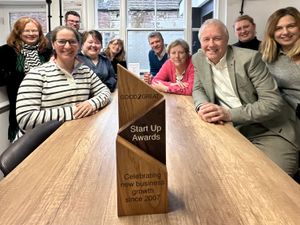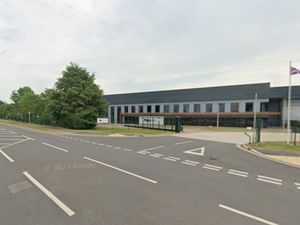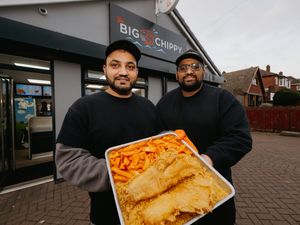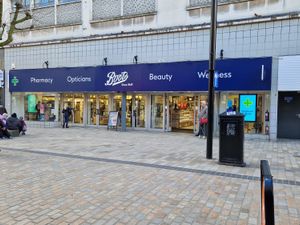Behind the scenes at Eurofins' state-of-the-art Wolverhampton lab making your food safe - WATCH
State-of-the-art laboratories on Wolverhampton's i54 site are making sure the food we eat is safe and does what it says on the label.
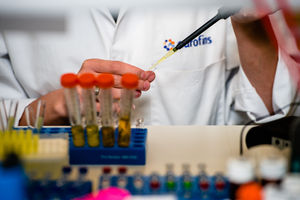
The team at Eurofins ensure that all those claims about sugar, fat, fibre and salt on the back on packets are reliable and accurate.
Its reputation has seen the company grow dramatically since the move to the ultra-modern business park five years ago, doubling the workforce at its purpose-built headquarters.
Now, with around 300 people packed into its offices and labs, Eurofins is spending £1.5 million on a two-storey extension to the building.
WATCH: Behind the scenes at Eurofins
Plans for how the extension will be used are still being drawn up but general manager Patrick Harte says it will mean a major expansion for the laboratories testing for allegens – the tiny traces of substances ranging from sesame and mustard seeds, peanuts, sulphates and gluten to lupins, and molluscs – that can spark allergic reactions.
Patrick has been in the job just six months. He previously ran a tomato growing business in Norfolk for Association British Foods and was hired by Eurofins to handle the growth in the company's workload and the development of its i54 site.
"It's been a steep learning curve," he said.
The team at i54 handle work for the British Retail Consortium, food standards, accreditations and a range of analytic and advisory projects but the main role is the food and water testing carried out by its 200 laboratory staff for clients ranging from major food producers to the big supermarket chains and retail groups. The nature of its work means the identify of Eurofins' clients are kept strictly confidential.
"We test for pesticides on fruit and veg, we can identify around 500 different compounds as well as mycotoxins – moulds. As well as testing to ensure food is safe, we analyse its ingredients to ensure that the information on labels for sugars, proteins, vitamins, fats, salt and so on is all accurate.
"A new field for us is testing alcohol, ensuring that it is not watered down or adulterated in any way. It's a bit of a return to our roots; the business started out testing wines and orange juices in France."
Major investment in the latest centrifuges and computerised analysis machinery has taken total spending at the site to around £10m since the move to i54 in 2012. It has speeded up the process so that the laboratories can receive a sample in the morning – be it a potato, tomato or even a pineapple – and get the results back to a customer by the afternoon.
"Speed is important because with fresh produce you have a limited shelf life and our clients need to get them delivered around the country," said Patrick. "But accuracy is absolutely critical. That is what our reputation is based on.
"The work we do ranges from field to fork. And that includes working with clients on new product development, making sure it is safe and complies with regulations at every point in the food chain."
In the labs the produce is sliced, diced, mashed up and reduced down to a tiny essence that is then run through a battery of tests to ensure any chemicals such as pesticides are at the proper safe levels.
Other teams are working on testing water samples. Not from the tap but usually from systems such as air conditioning, and the tests are for bugs like legionalla or for levels of metals that may exist.
As well as the chemical testing, the labs at Eurofins also work on microbiology. These labs work seven days a week running culture ests that can take up to five days to assess whether food samples contain any micro-organisms that shouldn't be there.
As a result, the site is carrying out thousands of individual tests every week, which adds up to millions a year as demand increases
Pressure on space at the i54 site increased last year after Eurofins bought rival Exover, leading to the transfer of around 70 people from its site in Birmingham to Wolverhampton.
The new extension work now under way will add two floors, each of 1,000 sq m (10,700 s1 ft) to allow for more laboratory space. The hope is to have it fully operational by this winter.
Eurofins has a dozen sites across the UK and Ireland, but also taps into the expertise of its operations overseas. The British business is part of a £2bn a year group is based in Luxembourg with 28,000 employees in around 310 sites in 39 countries.

